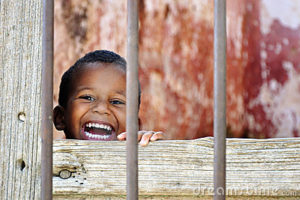A Cuban phrase that marks a stage of childhood. ‘The age of the peseta’ is a phrase that stops to speak of the Cubans.
The children of old in Cuba when they changed their teeth, it was customary to keep them under the pillows waiting for a peseta (20 cents) to buy some candy, candy or cheap toy and from there arises a popular phrase.
Now that period that extends until the 10 years begins with the entrance to the school life and is when the boys return to the home with absurd jokes that only to them causes hilarity, “pujos” to say in good Cuban.
They acquire unpleasant habits like burping and spitting constantly and in the case of men very specifically, they begin to refuse the bath, to pronounce curses and to bother to do favors or help at home.
If they play in the street, it is necessary to persecute them so that they return to do the homework and to bathe, and to watch them well, because they are eternalized in the shower with imaginary games, including the investigation of the own body and its reactions.
At that moment they begin to refuse to celebrate birthdays, and they do not tolerate children younger than them, unless they admire them and consider bosses or patrons to follow and thus arise gangs to play in the neighborhood or school.
That is a difficult stage of childhood that goes from seven to ten years of age that the Cubans coined as “The age of the peseta”, an expression that is usually said to the little ones in the tone of jarana.
A 2006 film by Pavel Giroud, whose screenplay was pioneered by Nobel laureate Gabriel García Márquez, winner of several international awards, is titled The Age of Peseta and tells the story of a child, contemplated in that age range.
Frases Populares Cubanas: es “La Edad de la Peseta”.
Una frase cubana que marca una etapa de la infancia. La edad de la peseta es una frase que forma para de hablar de los cubanos.
Los niños de antaño en Cuba cuando mudaban los dientes, tenía la costumbre de guardarlos bajo las almohadas en espera de una peseta(20 centavos) para comprar algún caramelo, dulce o juguete barato y de ahí surge una frase popular.
Ahora ese periódo que se extiende hasta los 10 años comienza con el ingreso a la vida escolar y es cuando los muchachos regresan al hogar con chistes absurdos que sólo a ellos provoca hilaridad, “pujos” al decir en buen cubano.
Adquieren hábitos desagradables como eructar y escupir constantemente y en el caso de los varones muy específicamente, comienzan a negarse al baño, a pronunciar palabrotas y a molestarse por hacer favores o ayudar en casa.
Si juegan en la calle hay que perseguirlos para que regresen a hacer los deberes y a bañarse, y vigilarlos bien, pues se eternizan en la ducha con juegos imaginarios, incluidos la investigación del propio cuerpo y sus reacciones.
En ese momento comienzan a negarse a celebrar cumpleaños, y no toleran a los niños menores que ellos, a no ser que estos los admiren y consideran jefes o patrones a seguir y así surgen las pandillas para jugar en el barrio o la escuela.
Esa es una díficil etapa de la infancia que va desde los siete hasta los diez años de edad que los cubanos acuñamos como “La edad de la peseta”, una expresión que se suela decir a los pequeños casi siempre en tono de jarana.
Un filme de 2006 del Pavel Giroud, cuyo guión fue impulsado por el Nobel Gabriel García Márquez, ganador de varios premios internacionales, lleva como título la Edad de la Peseta y narra la historia de un niño, contemplado en ese rango de edad.
Agencies/Arrajatabla/Alberto Denis/Internet Photos/ Arnoldo Varona/ TheCubanHistory.com
THE CUBAN HISTORY, HOLLYWOOD.









